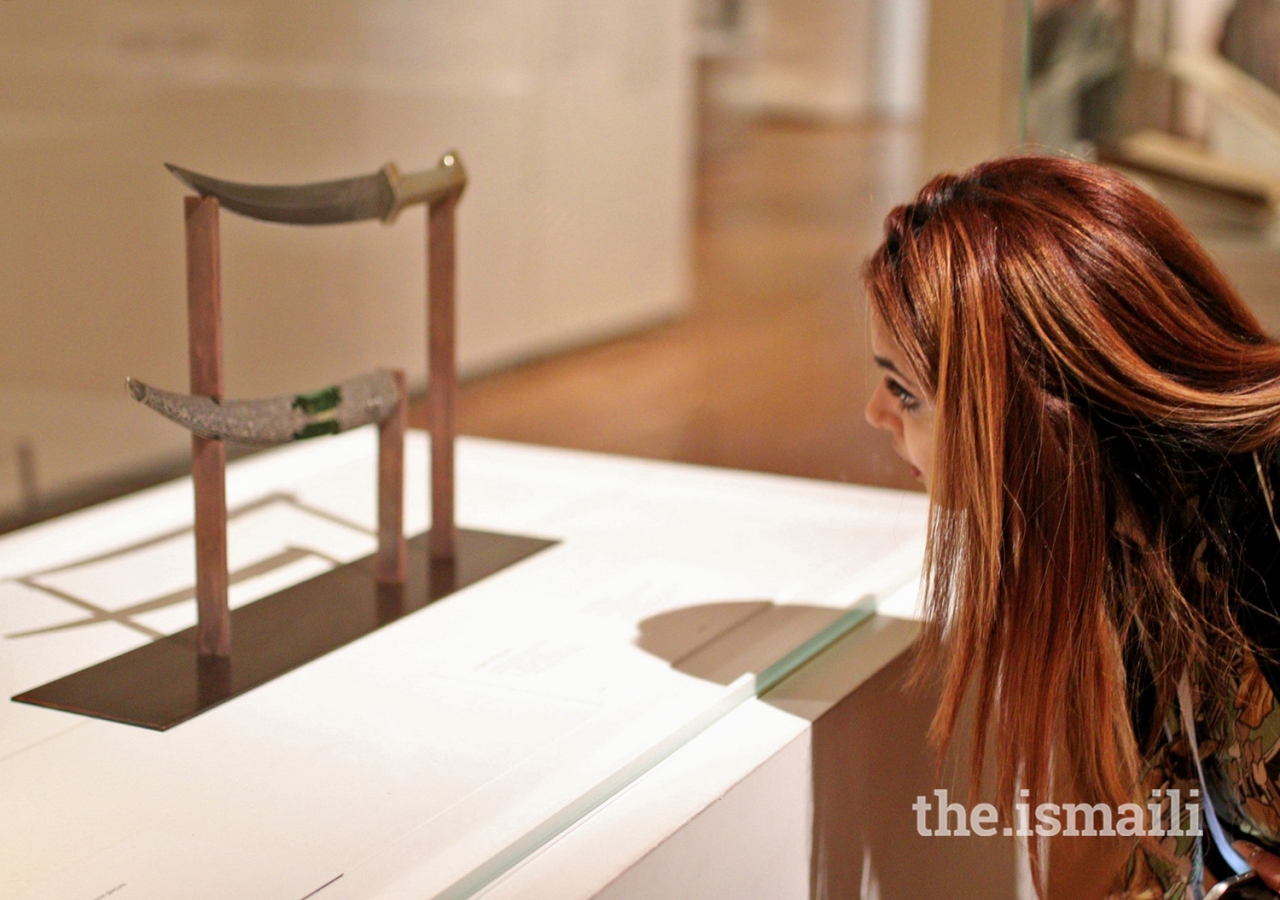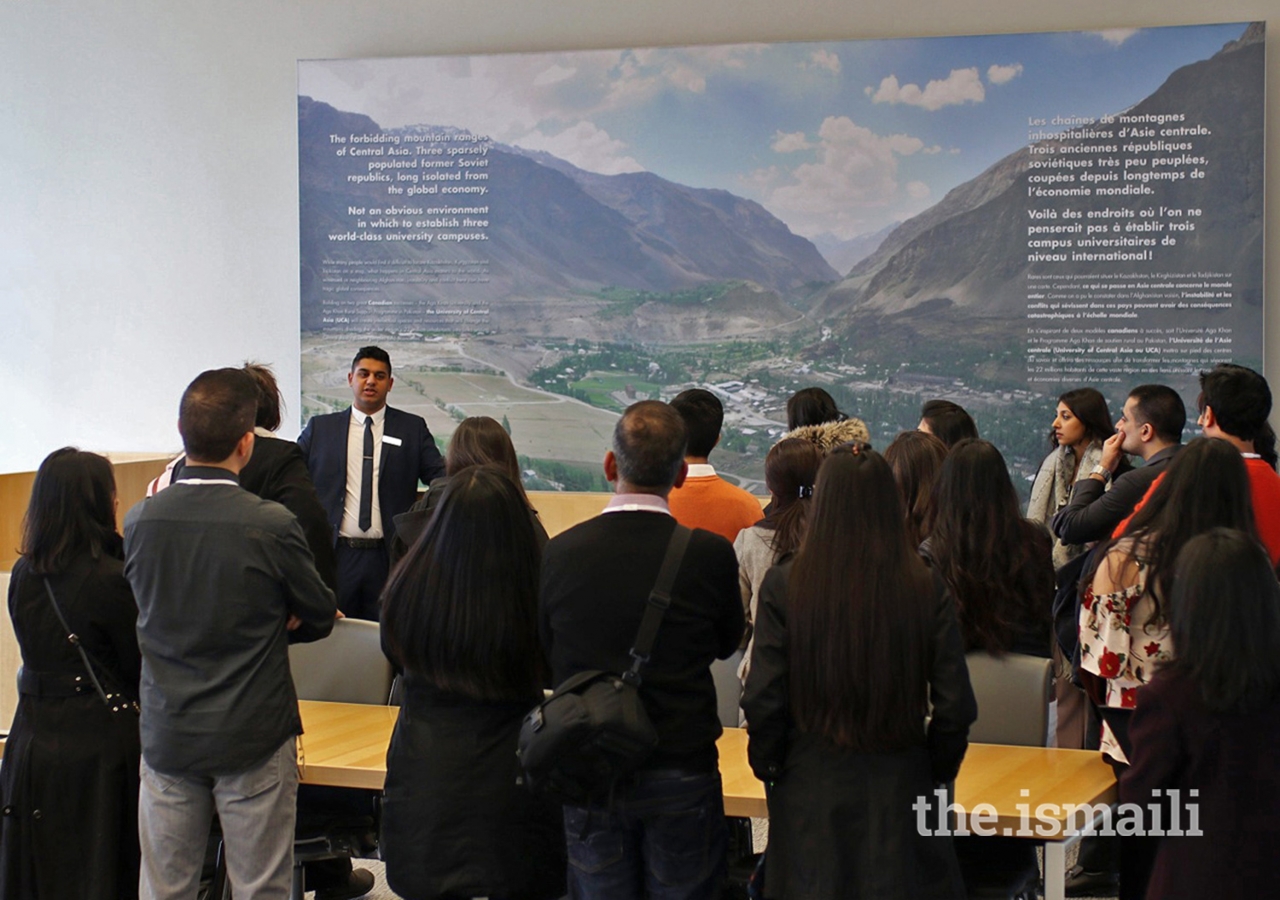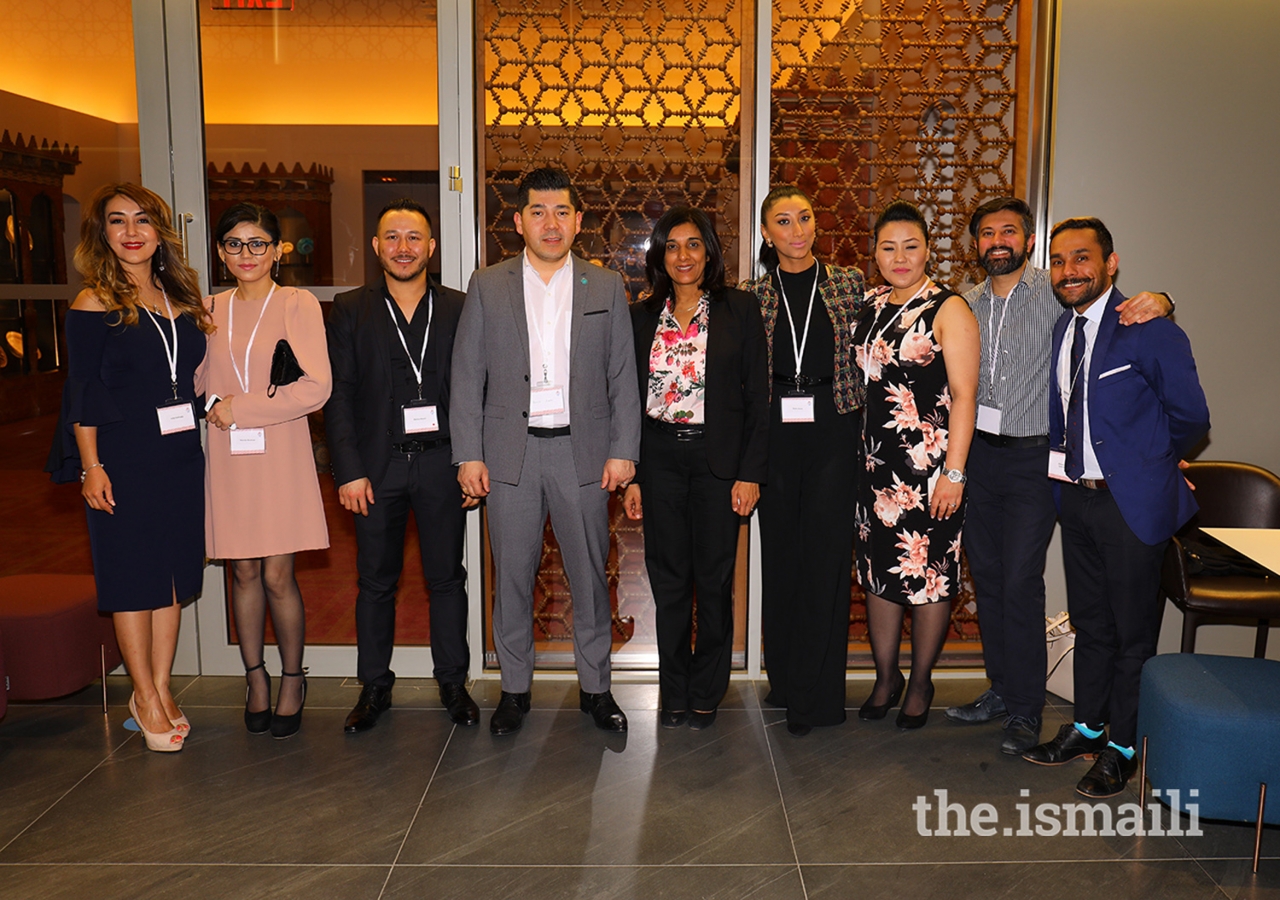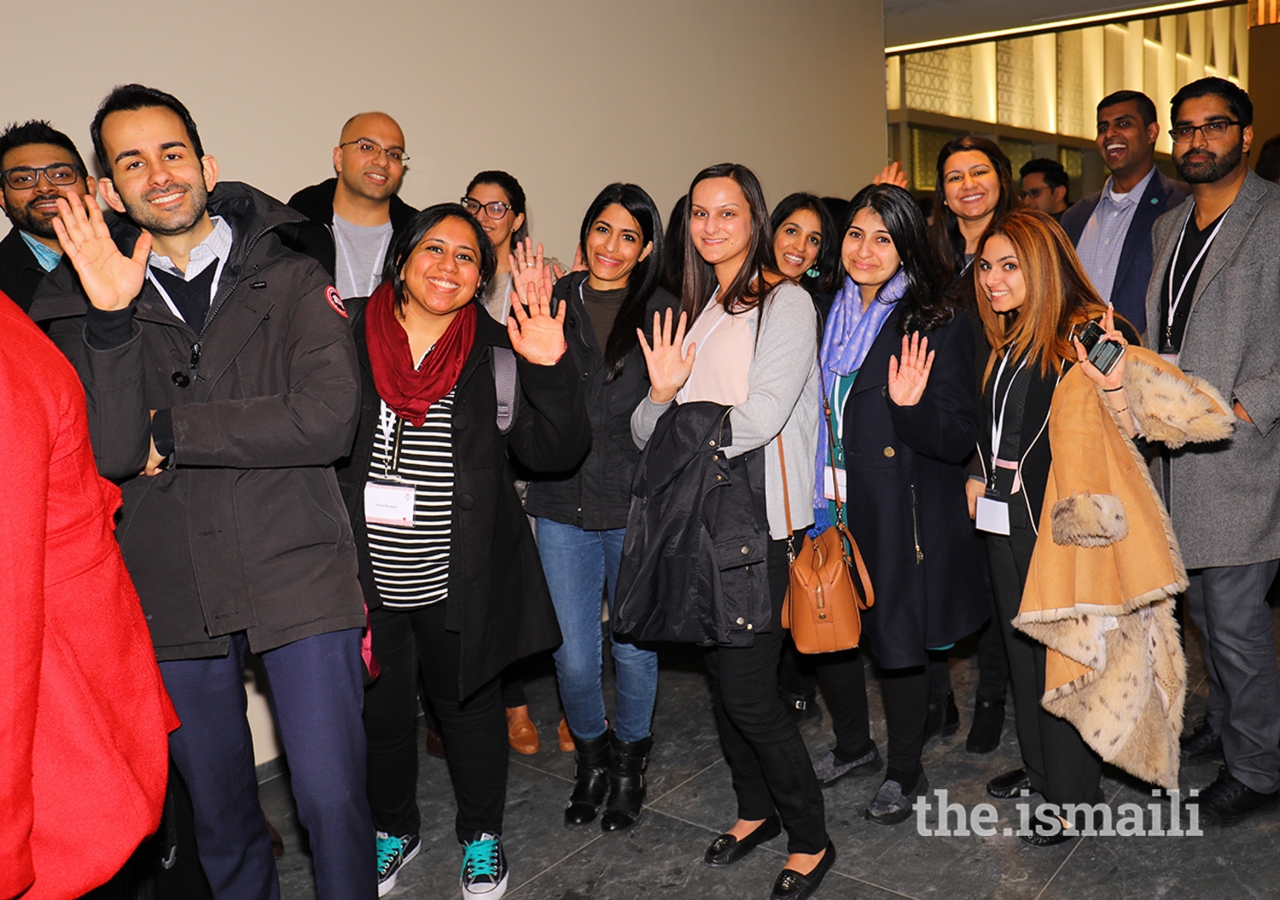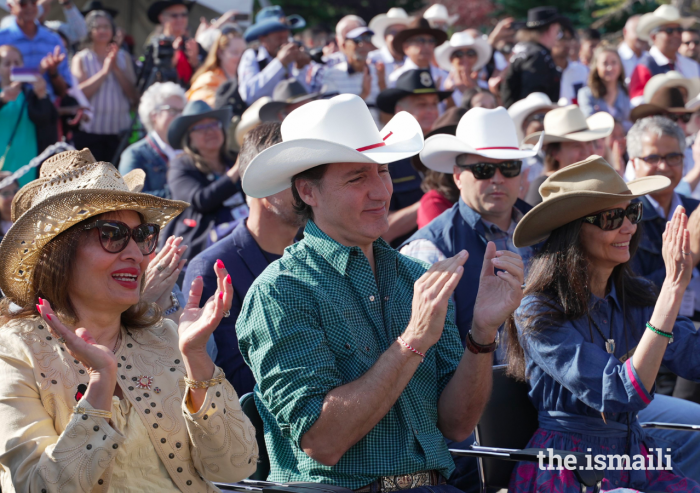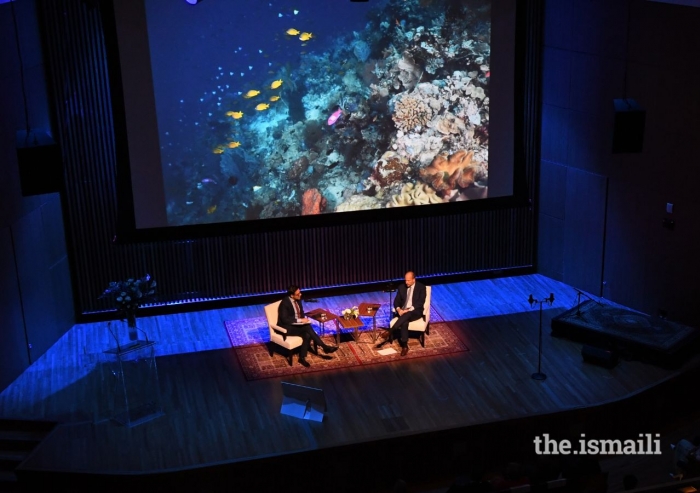The Jubilee Heritage Programme, a Diamond Jubilee initiative delivered by the Jubilee Programs and Activities Task forces for Canada and the USA as well as the Aga Khan Youth and Sports Board, took the group of 25- to 40-year-olds through four institutional buildings: the Delegation of the Ismaili Imamat and the Global Centre for Pluralism in Ottawa; and the Aga Khan Museum and the Ismaili Centre in Toronto.
Speaking about the aims of the initiative, Ismaili Council for Canada Vice President Karima Karmali outlined two main goals. The first was “to build a connection between people; between Jamats, and between individuals,” she said, and “Second, clearly Mawlana Hazar Imam has a vision for the buildings he has invested in here in Canada, and I think that vision is about our future. What we really want people to take away is a glimpse into the future and what is actually possible, and to tie that to our heritage and our history.”
The program also provided participants the unique opportunity to hear from and interact with a group of Jamati leaders from both countries.
Dr. Mahmoud Eboo, Chairman of the Leaders International Forum and Resident Representative of the AKDN in Canada, and Henry Kim, Director and CEO of the Aga Khan Museum, delivered keynote speeches, while Khalil Shariff, CEO of the Aga Khan Foundation Canada, and John McNee, Secretary General of the Global Centre for Pluralism participated in panel discussions.
Kim explained that the goal of the Aga Khan Museum is not simply to present the arts, but to change perceptions and mindsets.
Kim also spoke about how the museum’s Fatimid exhibition shows that Muslim empires were not what they’re often perceived to have been.
“A very important lesson we get from the Fatimid rule and we get from this exhibition, that also underscores what this museum is trying to point out, is across time and across cultures there are more examples of cultures living harmoniously and building up together, than those that rended apart,” he said.
Both Khalil Shariff and Zahir Ladhani, Council for the U.S. Vice President, encouraged the young adults to participate in the global efforts of the Ismaili institutions.
“You are both teachers and learners from our institutions,” said Shariff to the audience at the Delegation of the Ismaili Imamat. “Their strength relies on the character of our engagement.”
And during an inspiring closing speech at the Ismaili Centre Toronto, Ladhani asked, “Are we going to be spectators or are we going to participate?”
“Just get up and do something,” he answered. “Be it in the Jamat or be it in the community you live in.”
Although the weekend provided a surprise winter storm, the program’s leadership exemplified organisational resilience and the participants enjoyed added bonding time and many laughs on the unexpectedly extended bus journey from Ottawa to Toronto.
In fact, some of the best moments were those that were organic in nature — the deep conversation some participants enjoyed on the bus with both Canadian and American leadership and with each other. As Freba Muradi from Calgary shared, the commitment and passion of one of her tour guides was so contagious that she took a picture with her, saying that in the future when her commitment waivers, she will look back on that picture and be reminded of that passion and shared purpose.
Meena Naik, a participant from Dallas, described what was most meaningful to her: “Seeing there is a group of us willing to not only talk about the challenges we face as Ismailis, but also to mobilise to make our Jamat better,” she said.
Navid Kapadia, a participant from Atlanta, echoed her sentiments. “Regardless of where we come from, it is very satisfying to see the brotherhood amongst all of us and realise that in coming together in this brotherhood, we can accomplish so many amazing things throughout the world,” he said.
Rishma Bhimji, Canadian Project Manager of the Jubilee Heritage Programme, spoke about what she hopes attendees will take home: “My hope in terms of people remembering things from this weekend is that they share every piece of information they received, and they understand they need to be the ones to educate and bridge the knowledge gap, within their own communities and globally,” she said.
Bhimji said she hopes participants will share their experiences with family members and others who could not join the Jubilee Heritage Programme on this occasion.

